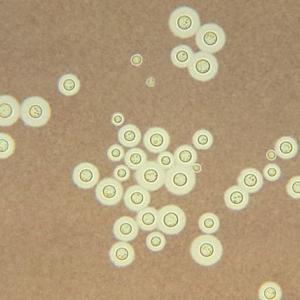Perfect receives honors for mycology research accomplishment
John Perfect, MD, professor of medicine and chair of the Division of Infectious Diseases, is being honored by two organizations for his scientific contributions to the field of mycology.
New research: Kidney failure impacts survival of sepsis patients
Ephraim Tsalik, MD, PhD, and colleagues at Duke Medicine have determined that kidney function plays a critical role in the fate of patients being treated for sepsis, a potentially life-threatening complication of an infection.
Four from Medicine recognized at Spring Faculty Meeting
At the School of Medicine's Spring Faculty Meeting on May 5, the following Medicine faculty were honored with awards:
Michael Blazing, MD, associate professor of medicine (Cardiology), received the Arnold P. Gold Foundation Leonard Tow Humanism in Medicine Award, which recognizes compassion and sensitivity in the delivery of healthcare.
5/14/15: Hamilton to present history of Duke Infectious Diseases
The Medical Center Library & Archives will host a talk by John D. Hamilton, MD, professor emeritus of medicine (Infectious Diseases), at noon on May 14.
Dr. Hamilton will present "The History of Infectious Diseases at Duke in the 20th Century," based on his recently published book.
Prudhomme-O'Meara receives supplemental Duke CTSA award
Wendy Prudhomme-O'Meara, PhD, assistant professor of medicine (Infectious Diseases) and global health, has received a supplemental award through Duke Translational Research. The award will provide supplemental funding for the project "Novel mHealth platform to ensure quality of community-based malaria diagnosis."
The research evaluates an innovative public-private partnership in Kenya using trained community health workers to target malarial medicines to those with confirmed malaria infection.
Philanthropies announce new program to support early-career scientists
Three of the nation’s largest philanthropies – the Howard Hughes Medical Institute, the Bill & Melinda Gates Foundation, and the Simons Foundation – have announced a new partnership to provide much needed research support to outstanding early-career scientists in the United States.
Through the new Faculty Scholars Program, the philanthropies will invest a total of $148 million in research support over the program’s first five years.
Recently published: Hamilton’s history of Duke Infectious Diseases
John Hamilton, MD, professor emeritus of medicine (Infectious Diseases), has recently published his book "The History of Infectious Diseases at Duke in the Twentieth Century."
Four chosen to receive the 2015 Chair’s Research Award or newly created K-bridge funding
Mary Klotman, MD, chair of the department, and Scott Palmer, MD, MHS, vice chair for research, announced the recipients of the 2015 Chair’s Research Award, and the newly created K-bridge funding program. Both awards fund junior investigators who are making the transition to becoming independent scientists prior to their acquisition of extramural funding.

